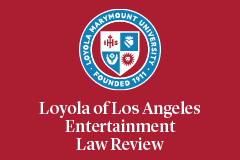Abstract
In November 2011, the Ultimate Fighting Championship (“UFC”) and several other plaintiffs, including Mixed Martial Arts (“MMA”) fighters and fans, brought suit against New York State officials, challenging the constitutionality of New York’s Unconsolidated Law section 8905-a (“Ban”), which prohibits the live performance of professional MMA events in New York. In Jones v. Schneiderman, the plaintiffs argued that the Ban was a violation of their First Amendment right to free speech because the sport is expressive conduct. Originally, MMA was publicized as “no holds barred” and as a blood sport with almost no regulation, which drew the attention of the public and the criticism of lawmakers. Eventually, criticism over the safety of the fighters and MMA’s violent message led to the Ban’s implementation. However, despite MMA’s unchecked beginnings, in recent years the sport has undergone major changes under the authority of the UFC, including implementation of health and safety regulations, rules regarding the time and manner of the game, and an overhaul of MMA’s image. This Note postulates that combat sports like MMA are expressive conduct deserving First Amendment protection, subject to regulation that is reasonable, narrowly tailored and does not fundamentally change the game. Furthermore, in order to mitigate fighter injury and avoid future lawsuits, sport organizations like the UFC should take note of the shortcomings of other combat sports where regulation was not implemented.
Recommended Citation
Ladan Shelechi,
Say Uncle: New York's Chokehold Over Live Performance Of Mixed Martial Arts: Whether Combat Sports Are Protectable Speech And How Much Regulation Is Appropriate For Inherently Dangerous Sports,
33 Loy. L.A. Ent. L. Rev. 205
(2013).
Available at: https://digitalcommons.lmu.edu/elr/vol33/iss2/4


